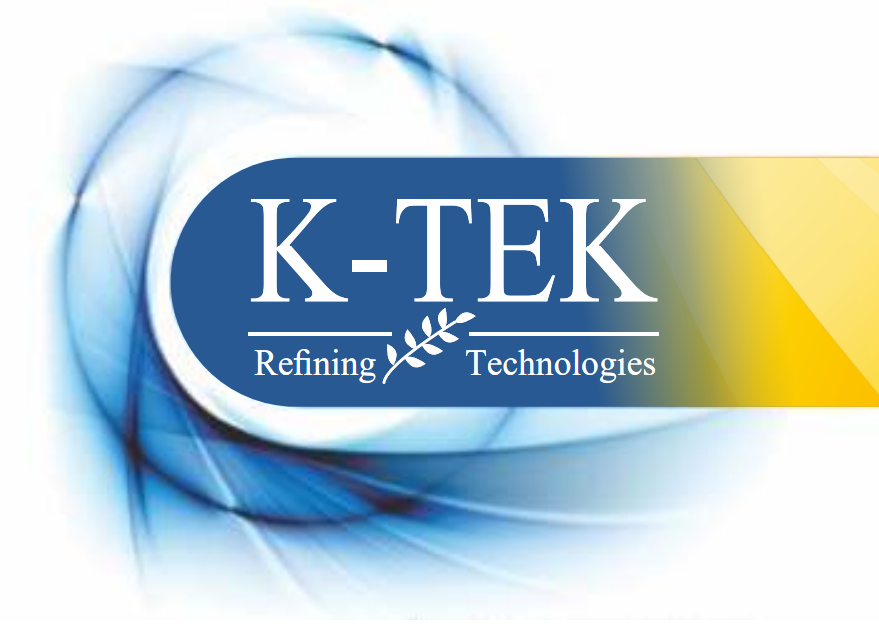Degumming
Water degumming
A large part of the phosphatides (gums) can be hydrated quickly and easily. If the pressed or extracted oil contains a considerable quantity of gums the oil is subjected to the water degumming process immediately following extraction. In this process, water is added to the oil. After a certain reaction period the hydrated phosphatides can be separated either by decantation (settling) or continuously by means of centrifuges.
In this process step a large part of hydratable and even a small proportion of the non-hydratable phophatides are removed. The extracted gums can be processed into lecithin for food, feed or for technical purposes. The gum content in the oil is subsequently reduced according to the refining quality requirements. In principle, the combination and concept of further processing stages is distinguished by
- Chemical refining and
- Physical refining.

In chemical refining the free fatty acids are neutralized by caustic soda resulting so-called “soap stock”
which is also separated either by decantation or continuously by means of centrifuges. Simultaneously the non-hydratable phosphatides are also separated in this process.
In physical refining the gum content can be further reduced by different processes:
- Dry acid degumming or
- Wet acid degumming.
- Flex degumming
Dry acid degumming
Dry acid degumming is particularly suit-able for processing oils with low gum contents such as palm oil, coconut oil, palm kernel oil or animal fats. Intensive mixing is implemented following addition of acid to the pre-heated crude oil. The conditioned gums are absorbed into the bleaching earth and are separated by filtration.
The benefits of the dry acid degumming process are:
- Efficiency as a result of
- Low energy consumption,
- Low operation and maintenance costs (sturdy and reliable control system),
- Long service life (the components are acid proof),
- Minimum footprint,
- Low investment costs,
- Environmental-friendly as no wastewater or soap stock occur.
Wet acid degumming
Initially oils with higher gum contents (e.g. corn oil) are similarly processed as in dry acid degumming. However, to achieve gum hydration water is added following acid apportioning. The gums are removed by a separator prior to bleaching. This process is beneficial as
- Centrifuges enable easy separation of gums in oil types with higher non-hydratable gums contents (e.g. rape oil and soybean oil),
- The consumption of bleaching earth is reduced because the oil has already been extensively degummed.
- Dry or wet acid degumming are not always sFlexficient to reduce gums to the value required in the oil prior to the combined deodorization and distillation process.
Thus, we have developed a special degumming process:
Flex degumming
The Flex process enables effective degumming of oils such as sunflower seed oil, maize oil and rape oil. It is also suitable for other oils in which the gum reduction required cannot be achieved with conventional dry and wet acid degumming prior to final steam refining.
Flex degumming is suitable for both crude pressed oil and for water-degummed oils resulting from pressing or extraction.
Oil conditioning with acids is generally based on the
- Retention of the mixture at a predefined temperature,
- Cooling of the mixture and simultaneous addition of caustic soda or a comparable flocculating agent,
- Further retention and reaction of the mixture, the heating and subsequent separation of the gums in a centrifuge,
- Washing of the oil in a second centrifuge stage to remove any gum residue.
The effective, economical and technical benefits of physical refining process are achieved by the Flexdegumming process. Compared to classic chemical refining these processes ensure
- Higher yield,
- Less operating resources,
- Improved environmental friendliness as no soap stock splitting on-site is required,
- Reduced consumption of bleaching earth and
- Convenient operation due to automation.
The Flex degumming features further specific benefits. The Flex degummed oil is characterized by increased storage stability as gums as well as prooxidative metals such as iron and copper are also widely removed. This ensures considerable improvement of the product quality.
Existing centrifugal systems can be retrofitted cost-effectively to Flex degumming plants. An appropriate Flex degumming plant design enables chemical neutralization of minor quality oils which cannot be processed in physical refining.
Enzymatic Degumming
Pre-treatment of seed oils with a small amount of acid effectively removes gums to a sFlexficiently low level to enable further processing. The addition of diluted lye enables adjustment of the pH value prior to dosing an appropriate enzyme. The phospholipase A enzyme (PLA) converts both hydratable and nonhydratable gums into lyso-gums and free fatty acids. The lyso-gums are more hydrophilic, which makes them easier to remove from the oil during centrifugation. Moreover, enzymatic deep degumming significantly reduces the presence of chlorinated compounds, which contribute to the formation of 3-MCPD if not removed.
